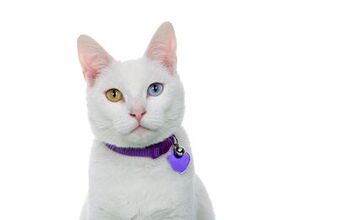Neurological Study Reveals Powerful Effect Petting Dogs Has On Brain

Petting a pooch sure feels nice, but did you know that petting a dog causes increased prefrontal brain activity? A new study by a team of scientists published at PLOS sheds some light on how interacting with our canine friends affects our brains – and the results are very promising.
The study involved 21 people, who participated in six sessions – in three, they were asked to pet a stuffed animal, and in the second three a dog. What the researchers report is that, when participants were interacting with a dog, their brains practically lit up, or more precisely – their prefrontal cortex. This area of the brain is involved in several executive functions, such as attention, working memory, and problem-solving processes, as well as social and emotional processes. What does this mean, in layman's terms? Well, according to the study lead, doctor Rahel Marti, this goes to prove that live human-animal therapy interactions may boost cognitive and emotional activity in the brain and solidifies the proven benefits of animal-assisted therapy in medically supervised neural rehabilitation for nervous system conditions (such as brain trauma, strokes, seizures, etc.)
Although it would have to be repeated on a grander scale for further analysis, this study was rigorously conducted, with functional near-infrared spectroscopy (fNIRS) devices, which is essentially a portable brain scanner that measures oxygen saturation and blood in the brain to determine activity levels in the brain. Once fitted with the scanner, the participants were asked to first watch a dog across the room, then be seated next to one, and lastly, to pet the dog to measure their response. There were 3 dogs involved in the study – a Jack Russell terrier, a Goldendoodle, and a Golden Retriever. After this session, the process was repeated but with a heated stuffed plush animal, and while there was brain activity in the same area, the intensity was much less intense, probably because there wasn’t an emotional response of affection like it happened with a dog.
While there have been previous studies – and real-life experiences – that have highlighted the importance and the many benefits of animal-assisted therapy, it’s fascinating to have recorded data on brain activity that provides solid evidence and further insight into the reasoning behind the efficiency of this type of therapy. It seems that, at the end of the day, dogs really are a man’s best friend – in more ways than one, they always have our back!

A proud mama to seven dogs and ten cats, Angela spends her days writing for her fellow pet parents and pampering her furballs, all of whom are rescues. When she's not gushing over her adorable cats or playing with her dogs, she can be found curled up with a good fantasy book.
More by Angela Vuckovic























